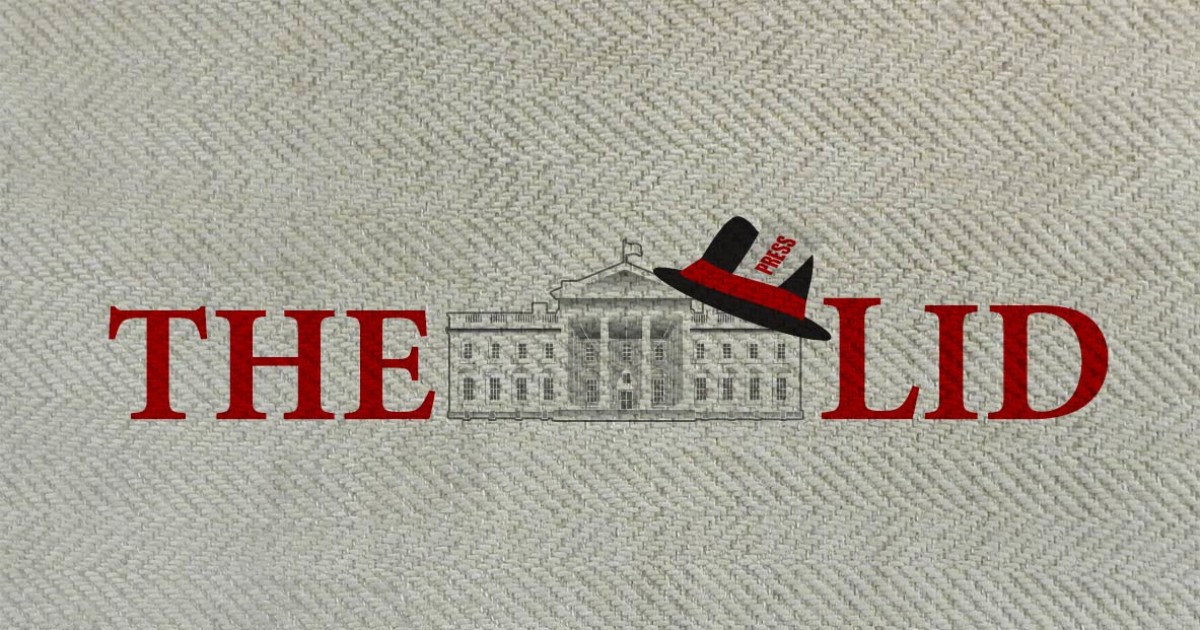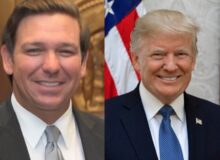The Monday evening presidential debate between Donald Trump and Hillary Clinton at best seemed like a draw. Some believe that Hillary won the night but even those people suggest she won by a nose.
2016 is a change election, voters are looking for something different. That’s why Trump won the GOP primaries and why against all odds Bernie Sanders gave Hillary a run for her money in the Democratic primaries.
The change mindset of the voters is what set up this and possibly future debates. As the “change agent” candidate with little political experience, Donald Trump needed to prove that he could be presidential, that he could handle the issues, and that he could debate without some of the craziness he displayed during the primary season. Hillary Clinton needed to demonstrate her experience, demonstrate that Donald Trump isn’t presidential material, seem likable, and because of her recent health problems prove she could last through a ninety-minute debate without keeling over.
Mr. Trump achieved the goal of looking presidential and debating without the errors, or the nastiness of the primary debates. In fact, Hillary Clinton was the attacker for most of the night.
Trump also needed to show that he could keep up with Hillary Clinton’s knowledge of policy. And while Clinton’s knowledge based did seem deeper at times, the gap wasn’t wide enough to display a clear difference. Although the moderator pointed much of the debate away from policy issues, at least the bread and butter issues of the economy and national defense Trump was strong.
In this strangest of presidential election years, the first of three debates between Hillary Clinton and Donald Trump was just as it should have been—strange, the strangest I’ve ever seen.
The first half hour of the debate was like a heavyweight championship match with two boxers standing in the middle of the ring just slugging it out.
But the remainder of the debate saw Clinton on the offense, slamming Trump about race relations, business dealings and personal honesty. Trump attacked Clinton right back but at times seemed restrained. possibly because he was warned not to attack Hillary too hard (the clip from the 2000 debate when Rick Lazio walked over to Clinton and demanded she sign an agreement was a constant feature on cable news leading up to the debate). It is just conjecture but perhaps his advisors moved him away from attacking his opponent. Either way Trump missed legitimate opportunities to deliver a crushing blow. This was despite the fact (if you excuse another sports analogy) at times when Clinton was setting herself up, Trump’s eyes widened like a power hitter when he sees a hanging curve ball approaching. But instead of swinging and hitting the ball out of the park, Trump “laid off the pitch.”
Hillary Clinton’s aggressiveness throughout the presidential debate should erase the questions about her health, she seemed full of energy from start to finish, and smiled through the entire evening.
Trump, on the other hand answered many of Clinton’s attacks too gently (and too literally). Rather than pivoting and turning an attack on him into an attack on the Democrat, he spent too much time defending himself. To win the election Trump needs to make Hillary’s track record the issue–not him.
There were times he handled this well, especially when he used the seemingly effective, “you’ve done it for 30 years and never fixed anything.”
At other times Ms. Clinton left Donald Trump with the perfect opportunity for a devastating blow and he passed it over. For example, when Trump mentioned the emails, Clinton responded, “You know, I made a mistake using a private e- mail. And if I had to do it over again, I would, obviously, do it differently. But I’m not going to make any excuses. It was a mistake, and I take responsibility for that.”
Trump should have responded with something like, it isn’t just the private server it’s the fact that your team erased the emails after they were asked to keep them by congress.
Or when Clinton claimed that Trump was weak on cyber-security, he could have responded that if she was concerned about cyber-security she would have used a secure email system instead of an email server in her basement.
Whether he simply had a bad day and missed opportunities, or if he took the advice to be kind to Hillary too far we may learn when we see Mr. Trump in presidential debate two.
Speaking of Mr. Trump. Throughout the entire debate Trump called his opponent Secretary Clinton, she called him Donald. If she follows suit, in the next presidential debate Trump needs to put her on equal footing and “Secretary Clinton” should become Hillary.
While she seemed confident through the night and certainly unflappable, some of the time that ‘friendly” smile she worked on so hard turned into a “cocky smirk.” And at one point when Trump defended his temperament Clinton answered Trump with a shoulder shimmy and a “Woo, okay” which Trump ignored and missed an opportunity.
Strangely the most substantial policy part of the debate was the economic section at the beginning. Here Trump was his strongest, and even Democratic commentators conceded he won this section of the debate. This was also the most fun to watch from a pure political wonk, debating point of view. The two candidates argued the differences between the elements/possible results of their economic plans, and international trade deals. Highlighting this section was a discussion about NAFTA and Trans-Pacific Partnership (TPP), which played into a Trump strength and a Clinton weakness (she was for TPP until Bernie Sanders’ campaign efforts pushed her to more of a populist position).
Strangely after the economic section moderator Lester Holt seemed to abandon he issues facing American and instead focused on the “gotcha issues.”
This began with grilling Trump about his tax returns. Holt began his question with “the IRS says an audit of your taxes — you’re perfectly free to release your taxes during an audit,” which is 100% true. In fact, the IRS probably encourages it, because if Trump released a few years’ of tax returns the IRS could go into any of those years which weren’t audited and find new things for which they could go after Trump. That’s why Trump’s lawyers (as any good attorney would) strongly recommended that he not release his returns until after the audits were done.
While he alluded to the fact that his lawyers told him not to release anything until the audit was over, he didn’t say it clearly, instead he offered to go against his lawyers’ orders if Hillary released the 33,000 emails, which was an indication he was willing to abandon his lawyer recommendation, but on his terms, which destroyed his argument about his attorneys’ orders.
Trump, also approached many of Clinton’s attacks too softly, rather than pivoting and turning them into attacks on the Democrat, he spent too much time defending himself. To win the election Trump needs to make Hillary’s track record the issue. At times he did it well, the “you’ve done it for 30 years and never fixed anything” argument was effective, but most of the time just took the heat and explained why he was right.
Prior to the debate there was a controversy about whether moderator Lester Holt should simply play moderator and facilitate a discussion between the two candidates, or add the role of a fact checker. In the end Holt decided to play fact checker but only on one side– Mr. Trump. Hillary’s mistakes such as,”When I became secretary of state, Iran was weeks away from having enough nuclear material to form a bomb, or “I was against [TPP] once it was finally negotiated,” and others, were ignored by Holt.
When he did he play truth squad, twice Mr. Holt repeated the error of Candy Crowley—his “fact check” was wrong. These Holt mistakes involved “stop and frisk” and Trump’s feelings about the Iraq war, in the second case it turned into a time-wasting argument between the moderator and the Republican.
Holt argued with Trump that “stop and frisk” was declared unconstitutional which isn’t true. In the 1968 ruling for Terry v. Ohio, the Supreme Court held that the Fourth Amendment prohibition on unreasonable searches and seizures is not violated when a police officer stops a suspect on the street and frisks him or her without probable cause to arrest, if the police officer has a reasonable suspicion that the person has committed a crime, is constitutional. In the case that NYC lost in 2013 a federal judge ruled that the way the city was applying stop and frisk was discriminatory against minorities. Mayor Bloomberg appealed the ruling, and the Second Circuit Court of Appeals suspended the order, sending it back to a new judge to be tried again. New Mayor (and Hillary’s campaign manager in her first Senate race) Bill DeBlasio who opposed stop and frisk decided not to appeal but would instead would institute reforms.
As for whether or not Trump was against the Iraq war before the war, moderator Holt insisted that the record showed that Trump did not say he was against the Iraq war before it began.
After the debate, Neil Cavuto of Fox Business played the tape of a Trump interview he did on January 28, 2003 (the war began on March 20). During their discussion Trump told Cavuto that it was more important that Bush focus on the problems with the economy rather than Iraq, certainly supporting the Trump timeline.
During the debate Trump also pointed to arguments he had with Sean Hannity about the war, prior to its first battle. However, while Hannity did back up the Republican, until he produces a tape of the confrontation Hannity’s confirmation is not as convincing as Cavuto.
Also strange was Lester Holt’s choice of topics. He questioned Mr. Trump on his tax returns, controversial statements about Clinton’s stamina, three questions about birtherism, and fought with him on whether he was against the Iraq war before the war started, etc. Holt did not ask similar question to Ms. Clinton. There were no questions about her wanting to put the coal industry out of business, the email scandal (it was Trump who brought it up), the pay for play Clinton foundation scandal, lying about the cause of Benghazi being a YouTube video, and a host of other issues.
And it was more than his selection of topics that made Mr. Holt seem one-sided. After checking the transcript, we can see that (as I mentioned above) Lester Holt fact-checked Donald Trump five times, but not once did he fact check Hillary Clinton. Additionally Holt interrupted Donald Trump forty-one times, but interrupted he Clinton only seven times.
To be totally honest the American voter would have been better served if Holt avoided the “gotcha-type” questions to Trump and didn’t ask any to Clinton. Rather he should have spent time on policy issues such as health care, saving social security, immigration, or even gun policy which is important to Clinton and a big point of difference between the two.
When all is said and done, after watching the debate twice and reading the transcript one thing is very clear. After ninety minutes of debate it would a surprise if either candidate generated a major shift of voters to their side (especially in the “college-educated whites,” demographic group which many pollsters say are the last voters to make a decision).
Up next is a Vice Presidential debate next Tuesday evening, and presidential debates Oct. 9 at Washington University in St. Louis, and Oct. 19 at the University of Nevada, Las Vegas. I would suspect that Trump will abandon the “soft sell” and become “no more Mr. Nice Guy.”
Finally, one may notice that the viewer polls conducted by Drudge, Time, and CBS showed Trump to be the big winner and one from CNN that showed that Clinton won. Ignore them all. They are fun to keep track of by they are unscientific and meaningless. Beyond that history has shown that the real effect of a debate doesn’t really show up until a week or so after the debate. In two or more weeks when the election preference polls are updated to include five to ten days after the debate, then we will be able to really determine voter swings resulting from the debate.






